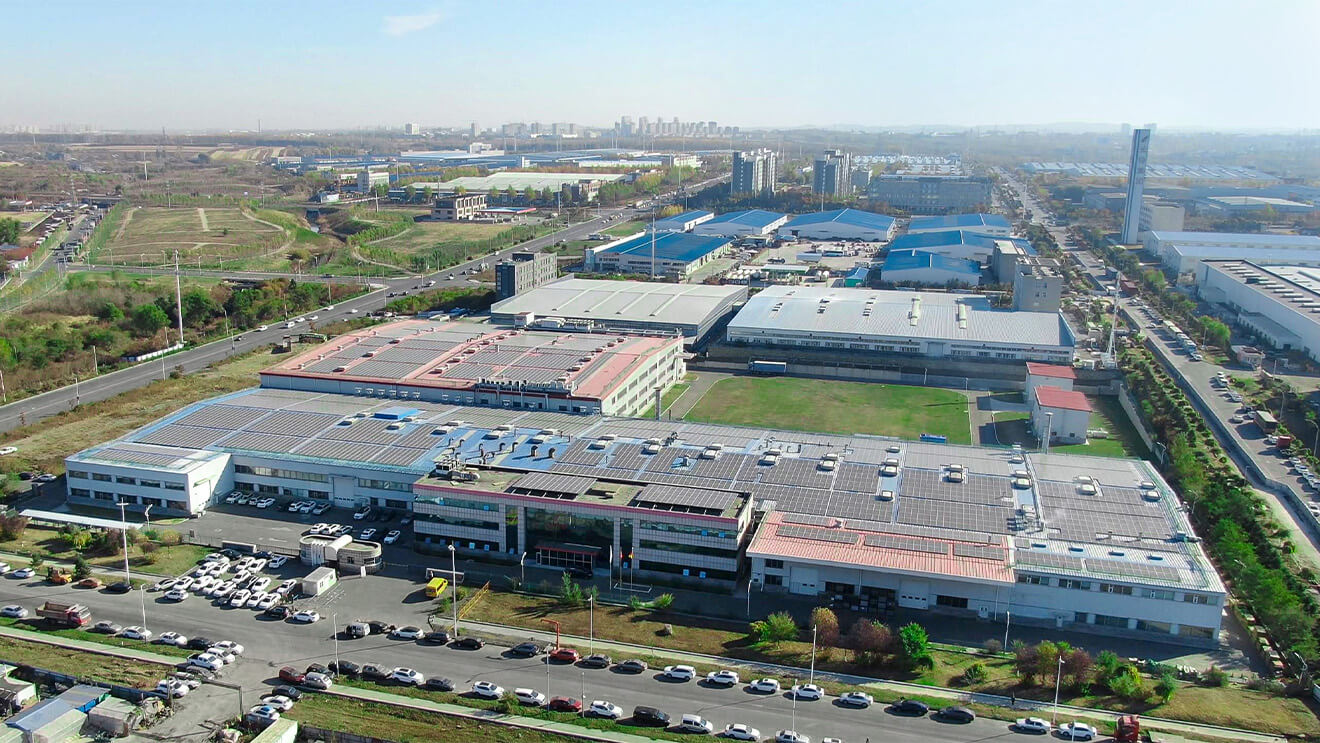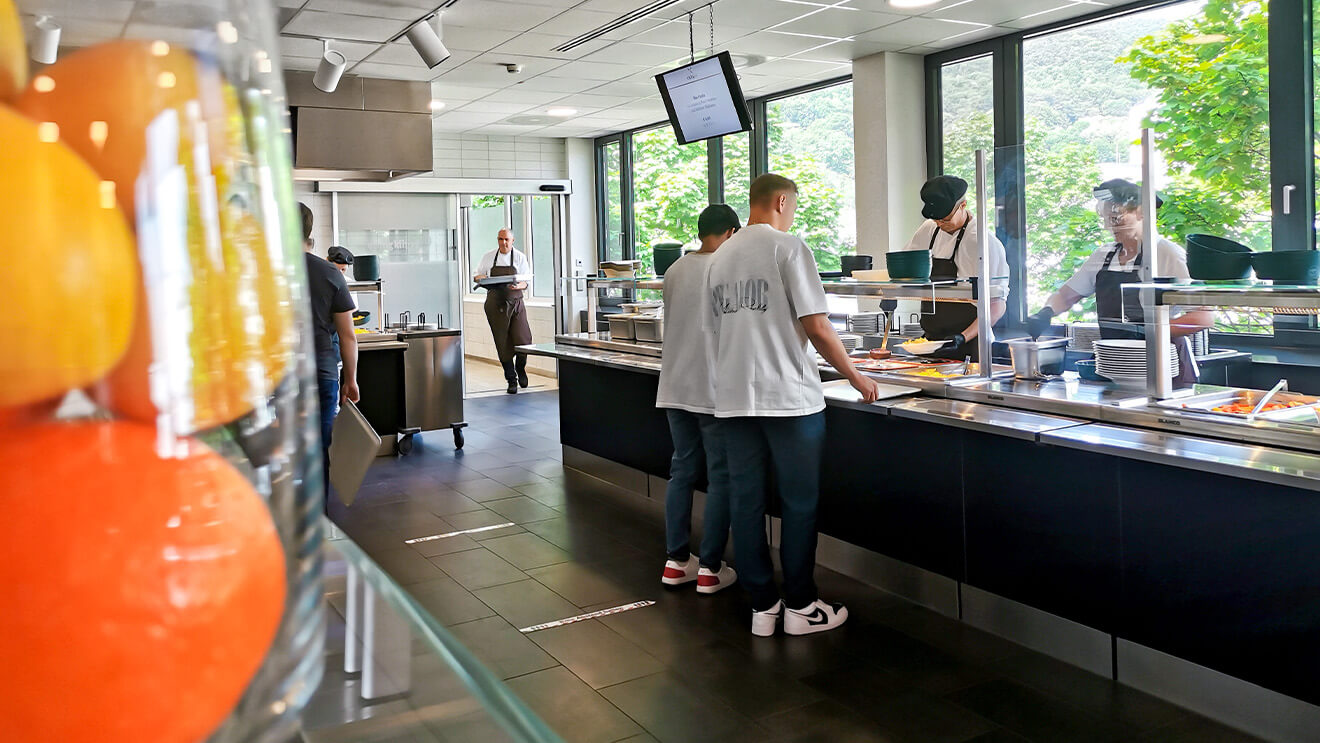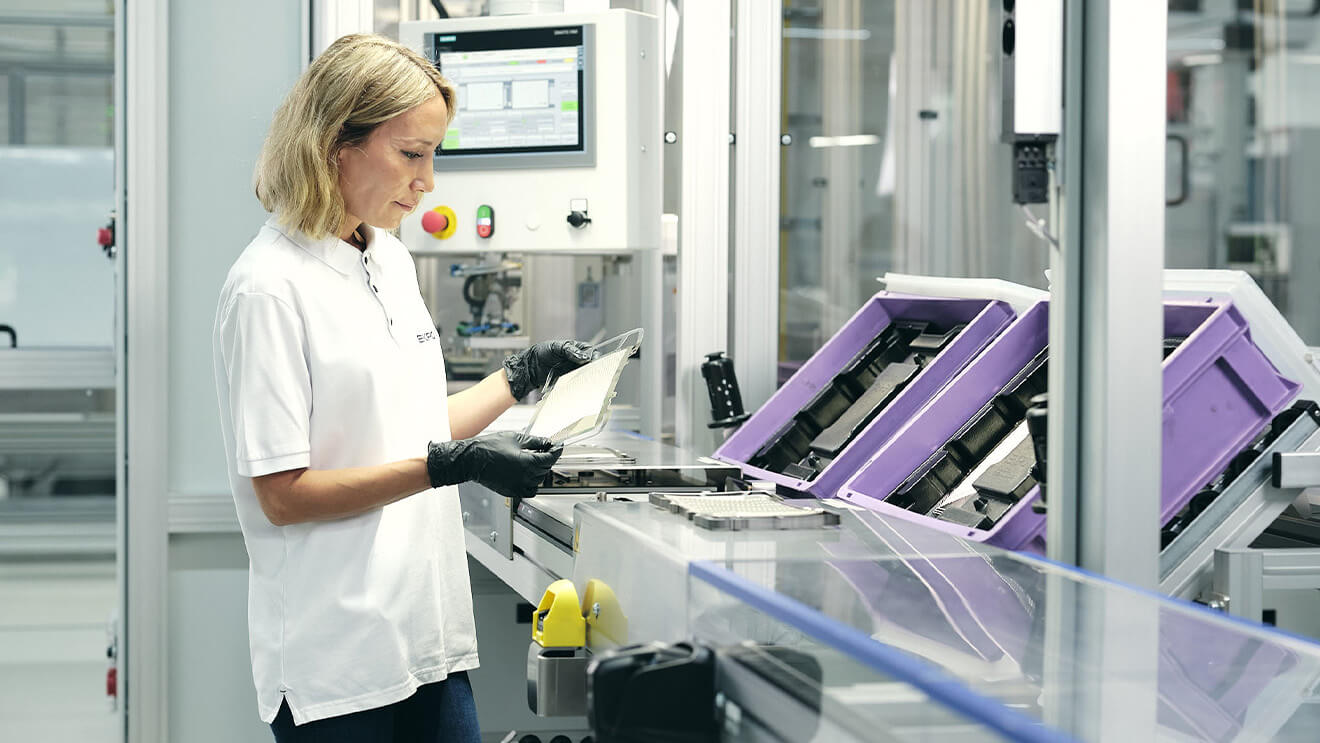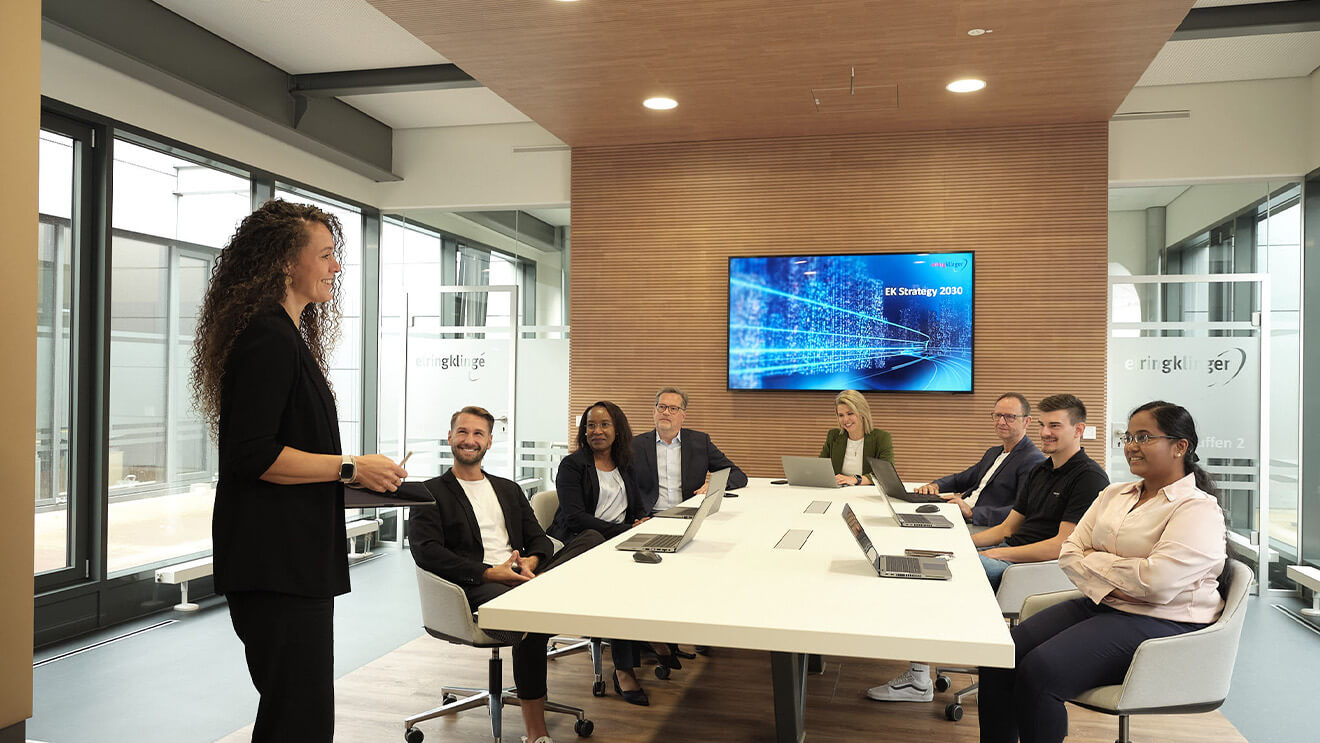Success factor of the future
The process of transformation within the automobile industry is well under way. The world of people management is also evolving. In this interview, Dr. Markus Keddi (Vice President Human Resources) explains how ElringKlinger is equipping its employees with the skills they need to meet the challenges of the future and why it is so important to develop the company’s corporate culture.
"We want to ensure that we continue to have sufficient talent available for specialist tasks and future-facing endeavors."
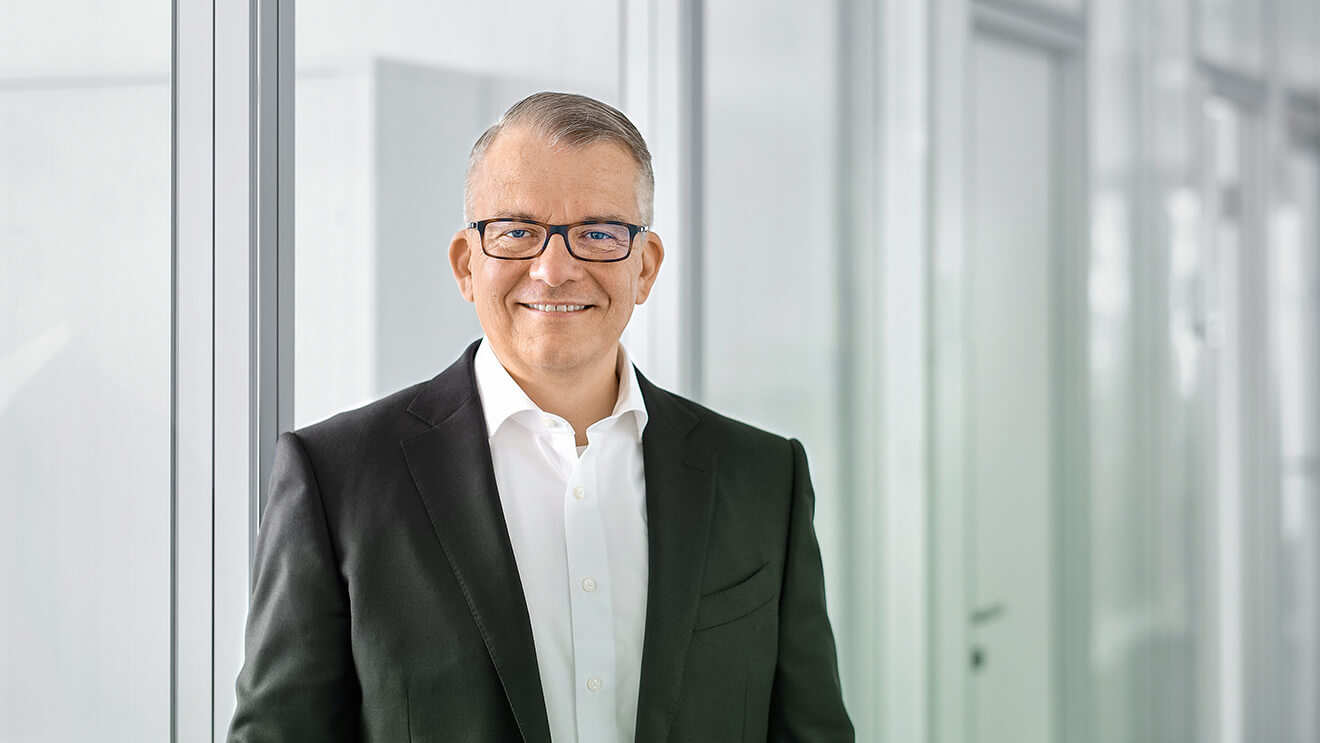
Dr. Keddi, the automotive industry and thus also ElringKlinger are in the midst of transition. What impact will this have on ElringKlinger’s employees?
The transformation process will have a major impact on our employees. The roles themselves, but also the way in which work will be performed in the future, are changing. Our task here is to prepare our workforce for the challenges of the future and at the same time allay any fears they may have. We want to achieve this by inspiring confidence through the transfer of new competencies. After all, transformation creates new framework conditions, markets, and products. ElringKlinger is committed to empowering its employees with the help of state-of-the-art learning formats in which continuing education and training can be provided flexibly and independently of time, thus enabling us to implement measures tailored to individual learning preferences.
What are the cornerstones of your HR strategy?
We have aligned our HR strategy with the Group strategy, which includes setting targets for the period up to 2030. Our HR strategy is based on four areas of action: digitalization, professional advancement of skilled workers and managers, leadership and culture, and further professionalization of the HR role.
We are digitalizing our processes step by step and interconnecting HR-relevant data. In doing so, we are looking to become even more efficient and customer-oriented in my department. Another field of action is the future recruitment, development, and retention of our skilled and managerial staff. We want to ensure that we continue to have sufficient talent available for specialist tasks and future-facing endeavors. To this end, ElringKlinger is strengthening its efforts to identify and develop the next generation of skilled workers and managers. The aim is to nurture these talent pools within the Group to an even greater extent than has been the case to date. We are looking to fill up to 75% of our future management positions with our own young professionals. The third field of action is leadership and culture. ElringKlinger will continue to evolve its corporate culture in order to meet the challenges posed by the transformation of the automotive industry. In particular, we want to develop further in respect of innovation and cooperation, customer and market orientation, and flexibility. The fourth field of action in our HR strategy includes efforts to further professionalize the HR department. Our aim is to make HR work and the progress achieved in the context of our professionalization measures measurable on the basis of key performance indicators. In addition, as a next step we plan to ask our internal partners for their opinion on our services for the purpose of evaluating our processes based on this feedback.
How can all employees be successfully involved in the change process and be encouraged to embrace it?
There is no doubt in my mind that good communication is of central importance if we are to succeed in bringing our employees on board and inspiring them as we pursue our path of transformation. Therefore, our ambition is to communicate clearly and transparently so that our workforce understands where we are and where we want to go. We have to indicate clearly what the opportunities are with regard to the transformation process and why they exist. This also includes an honest assessment of the risks involved.
ElringKlinger considers the transformation of the automotive industry to be an opportunity and has drawn up its Strategy 2030 with this in mind. However, this strategy is by no means restricted to the Group’s product portfolio. What role does the further development of corporate culture play for ElringKlinger?
The culture of a company should never be viewed as an isolated space; it is, of course, influenced and, in many cases, driven by external factors. This is a normal evolutionary process that we too must embrace. I believe that a company’s culture has to be flexible. In this case, those who have adapted to these changes rapidly and nimbly are likely to prosper. No doubt, corporate culture is a key success factor for the future and radiates into many areas. With this in mind, ElringKlinger’s Group Strategy 2030 also focuses on evolving our corporate culture.
What efforts are you making to advance the company’s culture in your line of work?
The first step is to determine the status quo in order to see where we stand and what we may have to adjust to reflect regional differences within our Group. We have also established the Corporate Transformation department in HR corporate unit, which is tasked with consolidating and driving forward all activities in this area in the future. If we are to successfully develop our corporate culture, it is also essential that we empower our managers to lead the way as ambassadors of ElringKlinger’s corporate culture and act as role models with regard to the necessary changes. Here, staff members in the HR corporate unit in particular have to be trailblazers when it comes to leadership and culture, in addition to inspiring colleagues through the example we set. After all, only if we practice what we preach will we be perceived as credible and authentic.
What are the distinctive features of this transition at a company such as ElringKlinger, which has such a long tradition as a family-run business?
ElringKlinger is a fascinating company, with a rich heritage, performance-driven and enthusiastic people, and an exciting product portfolio. We know our roots and are proud of them. Culture is fueled by tradition, and ElringKlinger has plenty of that. The task now is to expand the “house” of ElringKlinger, reinforce the foundations of corporate culture, and further refine its existing culture in respect of innovation and collaboration, customer and market orientation, and flexibility.
The mega-trend of “sustainability” is permeating all areas of the economy and forms an integral part of ElringKlinger’s Strategy 2030. How does sustainability affect the area of Human Resources?
For us, it is primarily about supporting the Group’s sustainability goals and ensuring that the long-term nature of our actions is apparent. This includes maintaining the highest standard of working conditions worldwide. Other key elements include sustainable human resources planning, fostering employee groups that have been less represented to date, and strengthening the role of women in management positions. Sustainability has the potential to inspire, particularly as we are seeing a growing interest among jobseekers to work for employers who act in a sustainable manner.
Thank you very much for talking to us.






